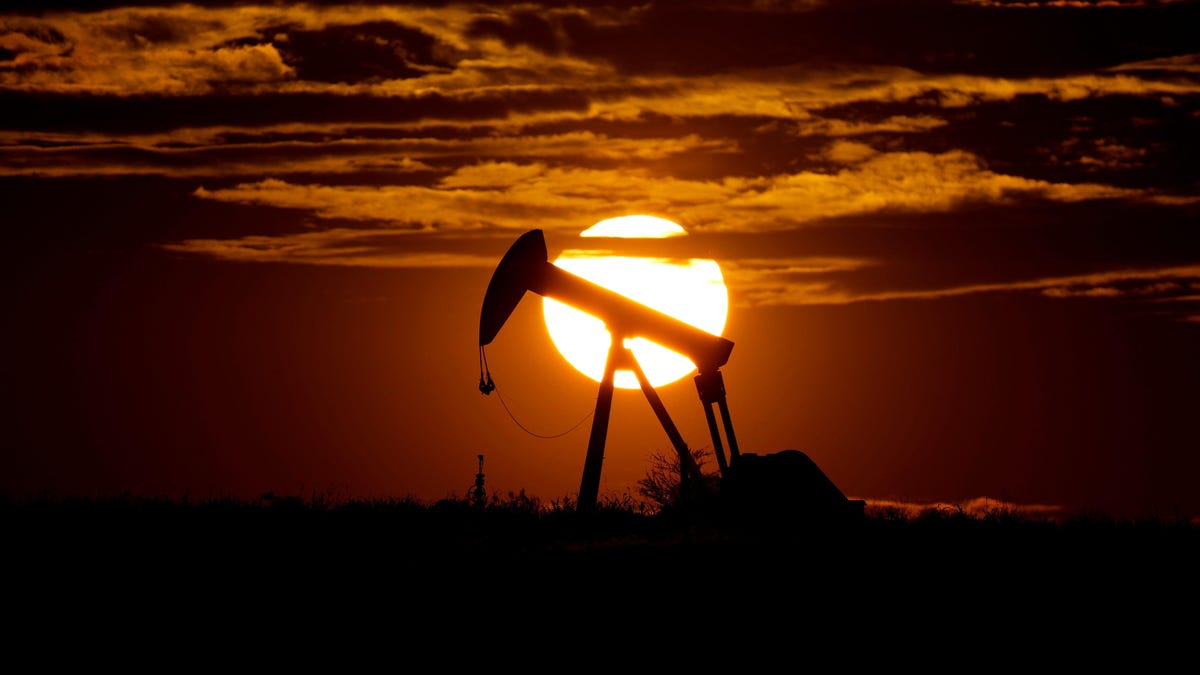
There’s a new coronavirus variant in town—and it may have a striking impact on oil. Global prices fell by more than 10% on Friday after the World Health Organization declared the omicron variant a “variant of concern.” The dip marks the biggest one-day crash since the early days of the pandemic.
The omicron variant has a worryingly-high number of spike protein mutations, which has created a rush of concern over its transmissibility and potential ability to evade protections. In response, governments around the world have taken preventative measures. Several countries, including the U.S., have initiated travel bans for passengers coming from southern African countries where the variant was first detected, and the variant’s presence has caused a wave of new restrictions and safety precautions in Europe. All this shutting down could translate to less demand for oil, which could cause prices to plummet.
“This is a major bearish factor for oil prices,” Claudio Galimberti, a senior vice president of analysis at Norwegian consultancy Rystad Energy, told the Houston Chronicle. “Higher infections mean eventually additional restrictions, which translate into lower economic activity and therefore lower oil demand.”
The thought of another global lockdown like the one we saw in spring 2020 is a nightmare for basically everyone, but oil producers have a special, profit-driven fear. Last year’s shutdown cratered demand for oil by so much that prices actually went negative in April 2020. That meant that producers, for a brief moment, essentially paid traders to take oil off their hands. Any major shutdown caused by omicron could have a similar effect.
There’s still a lot to learn about the omicron variant, including whether it’s more infectious than other coronavirus variants, causes more severe symptoms, and has the ability to bypass vaccine protections. That means the huge oil drop was largely speculative. (Who would’ve thought that the market could react irrationally?) Indeed, by Monday, prices seemed to have stabilized; Brent crude oil, a benchmark in the market, rose by 4.8%. Analysts say that producers and the market at large have chilled out a bit, waiting for more news about the variant like the rest of us. Ipek Ozkardeskaya, senior analyst at Swissquote Bank, told the Wall Street Journal that Friday’s dip in oil prices was nothing but a “panic selloff,” exacerbated by the fact that the markets were opened following a shortened trading day on Thanksgiving.
G/O Media may get a commission

Up to 50% off
Sennheiser Headphones
Hear everything for cheaper
This deal on all manner of Sennheiser headphones will get you listening to crisp, clear music for up to 50% less!
“There’s less likelihood we see sustained downside [in the market] from something like a variant because our ability to adapt to it is higher than it was,” Hani Redha, a portfolio manager at PineBridge Investments, told the Journal. “The ability to tailor vaccines makes a huge difference.”
Even though oil prices are in some ways tied to how the overall market is working, there are some additional external actors who play crucial roles in setting prices. OPEC is also scheduled to have a meeting later this week, which could change how oil prices look on the market. The oil cartel is partially responsible for why prices have been so high lately because it ordered producers to restrict production in order to drive prices higher following last year’s crash. In other words, we’re seeing the effects of the pandemic’s impact on oil last year still driving policy now.
OPEC already had a lot to talk about at this particular meeting beyond omicron. Last week, President Joe Biden announced that he would be releasing oil from the U.S.’s Strategic Petroleum Reserve in an effort to combat high gas prices. That release, coupled with similar releases from other countries, could affect oil prices around the world.
It seems like a stocked agenda is giving OPEC some pause: After news of the omicron variant broke, OPEC announced it would delay its meeting, deciding to hold it Thursday rather than Tuesday. Saudi Arabia and Russia have also said publicly that the oil majors shouldn’t rush to change their policy over the new variant.
“We need more time to understand what this new variant is and if we need to overreact or not,” an OPEC source told Reuters.
